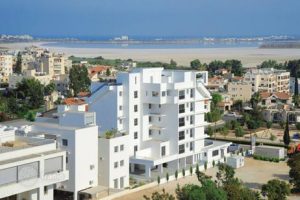OECD tightens banking checks for investment citizenship and residence permit participants
 On November 20, the Organization of Economic Cooperation and Development Countries (OECD) published a list of countries whose investment citizenship or residency programs it considers to be risky. The OECD recommends that banks carefully check clients who received a passport or residence permit under these programs, in particular, documents confirming the physical presence of investors in a particular country. This applies not only to new customers, but also to owners of particularly large accounts, which hold amounts from 1 million euros.
On November 20, the Organization of Economic Cooperation and Development Countries (OECD) published a list of countries whose investment citizenship or residency programs it considers to be risky. The OECD recommends that banks carefully check clients who received a passport or residence permit under these programs, in particular, documents confirming the physical presence of investors in a particular country. This applies not only to new customers, but also to owners of particularly large accounts, which hold amounts from 1 million euros.
What programs are considered risky?
The OECD identified two main criteria by which it defined investment programs as risky: low income tax on financial assets in the country that issued citizenship or residence permit, and the absence of requirements for the investor to reside in its territory.
Country Residence permit or citizenship program for investment, which is on the list of risk in the opinion of the OECD
Antigua and Barbuda
The bahamas
Bahrain
Barbados
Cyprus
Dominica
Grenada
Malaysia
Malta
Qatar
Panama
Saint Kitts and Nevis
Saint Lucia
Seychelles
Turks and Caicos
UAE
Vanuatu
What is the OECD initiative connected with?
In 2016, an agreement on the automatic exchange of financial information (Multilateral Competent Authority Agreement, MCAA) was concluded – an international agreement binding banks, brokers, investment structures and insurance companies of countries that signed the agreement to send information on non-resident accounts to local tax authorities. Those, in turn, transfer the collected data to the tax authorities of those countries whose residents are account holders. More than 100 countries have joined the agreement: states of territorial Europe, Canada, island states (BVI, Saint Kitts and Nevis, Bahamas, etc.), some Asian countries (for example, the United Arab Emirates and Saudi Arabia).
OECD believes that investment residence permit programs can become a loophole for those trying to escape from taxes. As stated in the report of the organization, since the investment residence permit and citizenship programs do not control the issue of tax residency, this can lead to violations in the reporting within the framework of the Common Reporting Standard (CRS).
What violations are we talking about?
Investment citizenship and residence permit schemes can be used to conceal the real tax residence of the investor. For example, when the investor does not actually live in the country, but declares that she is her tax resident, and provides the bank with the relevant documentation: a resident card or a passport received as part of the program.
The OECD recommended that bank employees check more carefully those who claim to be tax residents in designated risk jurisdictions. In particular, banks will find out the grounds for obtaining citizenship or a residence permit, the right to reside in other countries, may request tax returns for the past few years or ask to confirm the reality of the client’s residential address.



